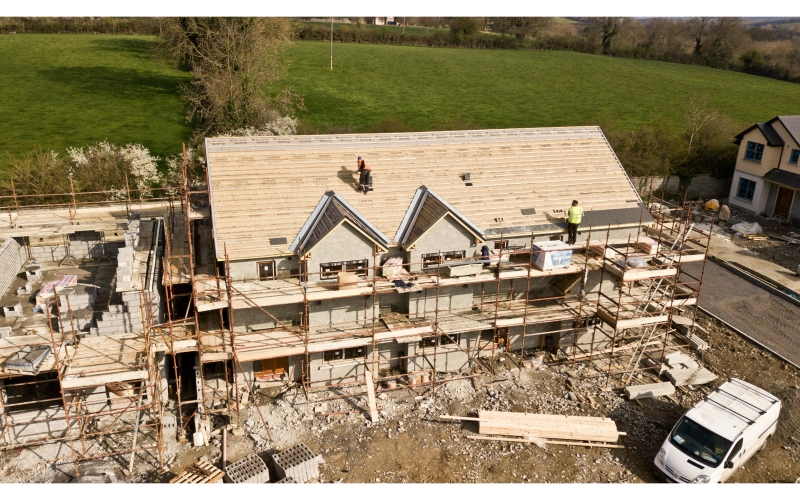What Does Under Contract Mean in Real Estate?

Key Takeaways
- “Under contract” in real estate means a seller has accepted a buyer’s offer, but the sale isn’t finalized yet. It’s an important step between making an offer and officially closing the deal.
- Being under contract doesn’t mean the property is sold—there can still be inspections, appraisals, or financing issues that could affect the sale.
- Buyers still have rights during this period, including the possibility to back out under certain contingencies, while sellers must follow agreed-upon obligations.
- There’s a type called active under contract, meaning the property is still technically on the market, often allowing backup offers.
Introduction
When you’re scrolling through real estate listings or talking to a real estate agent, you might see a property marked as “under contract” and wonder, “Wait, does that mean it’s sold? Can I still make an offer?” It can feel a little confusing at first because the words don’t always explain the whole story.
In real estate, terms like under contract, pending, and contingent get thrown around a lot, and each one has a slightly different meaning. For buyers, sellers, and even casual home shoppers, knowing what these labels really mean can save time, prevent frustration, and even help you make smarter decisions.
This guide will take a close look at what it means when a property is under contract. We’ll explore the journey from the moment an offer is accepted to what happens before the sale is officially closed. You’ll learn what buyers and sellers can do during this stage, what “active under contract” means, and even whether a buyer can back out—or if someone else can still make an offer.
Definition of “Under Contract”
In simple terms, a property is under contract when a seller has accepted a buyer’s offer, and both parties have signed a legally binding agreement. It’s like a handshake—but on paper—saying, “We agree to move forward with this sale under these conditions.”
Being under contract does not mean the property is sold yet. There are still steps or “contingencies” to complete, like inspections, appraisals, and financing approval. Until these are finalized and the deal closes, things can change.
It’s also important to understand the differences between similar terms:
- Pending: Usually means the contract is complete, contingencies are cleared, and the sale is moving toward closing.
- Contingent: Means the sale depends on certain conditions being met, like the buyer securing financing or passing a home inspection.
- Active Under Contract: Some listings remain on the market even while under contract. This allows sellers to accept backup offers if the current deal falls through.
How a Property Becomes Under Contract
Getting a property under contract is a bit like setting a date—you’ve agreed to move forward, but there are still a few steps before anything is official. The process usually starts when a buyer submits an offer on a property. If the seller likes the terms, they accept it, and both parties sign a purchase agreement. At this point, the property is officially under contract.
However, being under contract doesn’t mean everything is set in stone. Most contracts include contingencies, which are conditions that must be met for the sale to move forward. Common contingencies include:
- Financing contingency: The buyer needs loan approval from their bank.
- Inspection contingency: The property must pass a home inspection or any agreed-upon repairs must be made.
- Appraisal contingency: The property must appraise at or above the agreed price.
Once the contingencies are cleared and all conditions are satisfied, the property usually transitions from under contract to pending. This means the deal is much closer to closing, and it’s less likely that the sale will fall through.
It’s also worth noting active under contract listings. Some sellers keep their property technically “active” on the market while under contract, often to allow backup offers in case the current buyer cannot complete the purchase.
What “Under Contract” Means for Buyers
One of the most common questions is: can a buyer back out? The answer is yes—but only under certain circumstances, usually tied to contingencies in the contract. For example, if the home inspection reveals serious issues, or the buyer’s financing falls through, they may legally back out without penalties. Once all contingencies are cleared, though, backing out can become much more complicated and may involve financial consequences.
Another question buyers often ask is: can you make an offer on a property that’s already under contract? The answer is yes but it will be considered as a backup offer and in case the current deal fails then it will be your turn. During this stage, buyers should also:
- Stay in regular communication with their agent.
- Ensure financing and inspections are on track.
- Review all contract details carefully to avoid surprises.
What “Under Contract” Means for Sellers
- Honor contingencies: Allow inspections, appraisals, or other agreed-upon steps to take place.
- Maintain the property: Keep it in good condition until the sale closes.
- Communicate transparently: Respond promptly to buyer requests and updates from their agent.
Sellers should also be aware of potential challenges. As mentioned earlier, a buyer can back out during the contingency period, leaving the property back on the market. Which is why the term “active under contract” exists to attract other potential buyers that are very much interested in the property.
How Long Does a Property Stay Under Contract?
A property typically stays under contract for 30 to 60 days, depending on contingencies, financing, and how quickly inspections and appraisals are completed. Some deals move faster, while others take longer if complications arise. Active under contract listings might remain visible during this period, allowing backup offers just in case.
Bottom Line
Being under contract doesn’t mean you should lose hope if there’s a property you really like. Even during this stage, there’s still a chance the deal could fall through. The key is to stay in touch with the seller or their agent to show continued interest. This way, you’re ready if the current contract fails or if the property allows backup offers.
Recent Blog

How Rent-to-Own Works: Process & Key Details
A rent-to-own agreement allows you to rent a home now and buy it later, with part of your rent going toward the purchase price.
Read MoreHow Rent-to-Own Works: Process & Key Details
Different Types of Houses and Which One is For You?
There are a lot of types of houses that exist today, but only one would suit you the most!
Read MoreDifferent Types of Houses and Which One is For You?
What is an HOA? Understanding Homeowners Associations
Who decides what’s allowed and what isn’t? And what exactly are you paying for?
Read MoreWhat is an HOA? Understanding Homeowners Associations
How Long Does It Take to Build a House
Building a house typically takes 6 to 12 months, depending on size, design, permits, weather, and construction type.
Read MoreHow Long Does It Take to Build a House
What Is Earnest Money? A Simple Guide for First-Time Homebuyers
Earnest money is a deposit you make after your offer on a home is accepted. It shows the seller that you’re serious about buying.
Read MoreWhat Is Earnest Money? A Simple Guide for First-Time Homebuyers
How Can I See Old Listing Photos of a House
Use the site: operator on Google or Google Street View to find old listing photos of a house easily and quickly.
Read MoreHow Can I See Old Listing Photos of a House
What Does a Commercial Property Buyer’s Agent Do? (And Why You Need One)
When you work with a commercial property buyer’s agent, you’re not just hiring someone to open doors. You’re getting a full-time guide through every step of the buying process.
Read MoreWhat Does a Commercial Property Buyer’s Agent Do? (And Why You Need One)
The Tools You Need as a Real Estate Agent
With all the tools we have today, it is almost impossible to have a reason to quit early. We have it easier today than it was 10 or 20 years ago
Read MoreThe Tools You Need as a Real Estate Agent
Real Estate Marketing for Agents: The Modern Playbook to Get More Clients
Marketing helps agents stand out in a competitive market. Use both online and offline strategies to grow your reach. Tools like social media, SEO, and video help you build trust. Platforms like Zillow and Realtor.com let you show up in local searches. The goal is simple: stay visible, stay consistent, stay helpful
Read MoreReal Estate Marketing for Agents: The Modern Playbook to Get More Clients
8 Common Mistakes Home Buyers Make
These common mistakes often cause buyers to incur more costs than expected. Make sure you understand what these are.
Read More8 Common Mistakes Home Buyers Make
What Does 'Contingent' Mean in Real Estate?
In real estate, the word “contingent” means that a seller has accepted an offer on the home—but the sale isn’t final yet.
Read MoreWhat Does 'Contingent' Mean in Real Estate?
Why Should Home Sellers Offer Buyer Broker Compensation?
Paying buyer broker compensation can boost interest, reduce buyer costs, and lead to faster, smoother home sales, giving sellers a real market edge.
Read MoreWhy Should Home Sellers Offer Buyer Broker Compensation?